
Current Affairs is the most important area in all competitive exams. But the difficulty level is very high. That’s why; many aspirants get confused, how to select Current Affairs for Preparation of Competitive Examination? In this Post, Daily Current Affairs 24 July 2021, we have tried to cover each and every point and also included all important facts from National/ International news that are useful for upcoming competitive examinations such as UPSC, SSC, Railway, State Govt. etc.
Daily Current Affairs 24 July 2021
Chandra Shekhar Azad Jayanti 2021

Chandra Shekhar Azad Jayanti is celebrated on 23 July each year. He was an Indian revolutionary who reorganised the Hindustan Republican Association (HRA) under its new name of Hindustan Socialist Republican Association (HSRA).
Azad was born as on 23 July 1906 in Bhabhra village as Chandra Shekhar Tiwari, in the princely-state of Alirajpur. His forefathers were from Badarka village of Unnao District.
His mother, Jagrani Devi, was the third wife of Sitaram Tiwari, whose previous wives had died young. After the birth of their first son, Sukhdev, in Badarka, the family moved to Alirajpur State.
In 1921, when the Non-Cooperation Movement was at its height, Chandra Shekhar, then a 15-year-old student, joined. As a result, he was arrested on 20 December.
On being presented before the district magistrate Justice Reverend Tomson Kregat a week later, he gave his name as “Azad” (The Free), his father’s name as “Swatantrata” (Independence) and his residence as “Jail”.
Cabinet Approved Production Linked Incentive Scheme for Specialty Steel

Union Cabinet recently approved the Production Linked Incentive (PLI) Scheme for specialty steel. The duration of the scheme will be five years, from 2023-24 to 2027-28.
With a budgetary outlay of Rs 6322 crores, the scheme is expected to bring in investment of approximately Rs 40,000 crores and capacity addition of 25 MT for speciality steel.
The scheme will give employment to about 5,25,000 people of which 68,000 will be direct employment.
Speciality steel has been chosen as the target segment because out of the production of 102 million tonnes steel in India in 2020-21, only18 million tonnes value added steel/speciality steel was produced in the country.
The five categories of specialty steel which have been chosen in the PLI Scheme are Coated/Plated Steel Products; High Strength/Wear resistant Steel; Specialty Rails; Alloy Steel Products and Steel wires; Electrical Steel.
National Farmers Welfare Program Implementation Committee office
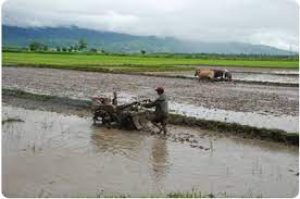
Union Agriculture and Farmers Welfare Minister Shri Narendra Singh Tomar inaugurated the office of National Farmers Welfare Program Implementation Committee.
The National Farmers Welfare Program Implementation Committee would act as a project monitoring unit for the implementation of PM-Kisan Yojana, Kisan Maandhan Yojana, Agriculture Infrastructure Fund and other schemes of the Department of Agriculture and Farmers Welfare.
The Central Government has implemented the Pradhan Mantri Kisan Samman Nidhi (PM-Kisan) scheme to make farmers self-reliant and to provide direct income support for agricultural expenditure.
Under this scheme, an amount of Rs 1.37 lakh crore has been transferred to the accounts of more than 11 crore farmer families so far.
Bhartiya Prakritik Krishi Padhati (BPKP)
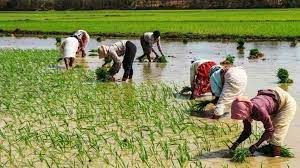
Government is implementing Bhartiya Prakritik Krishi Padhati (BPKP) as a sub scheme of Paramparagat Krishi Vikas Yojana (PKVY) since 2020-21 for the promotion of traditional indigenous practices.
The scheme mainly emphasizes on exclusion of all synthetic chemical inputs and promotes on-farm biomass recycling with major stress on biomass mulching; use of cow dung-urine formulations; plant-based preparations and time to time working of soil for aeration.
Under BPKP, financial assistance of Rs 12200/ha for 3 years is provided for cluster formation, capacity building and continuous handholding by trained personnel, certification and residue analysis.
Promoting of Organic Farming under Paramparagat Krishi Vikas Yojana (PKVY)
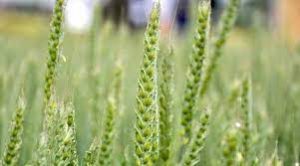
Government of India has been implementing dedicated scheme of Paramparagat Krishi Vikas Yojana (PKVY) since 2015-16 to promote chemical free organic farming in the country in cluster mode.
Under the programme, financial assistance of Rs 50000/ha/3 years is provided for cluster formation, capacity building, incentive for inputs, value addition and marketing.
“Paramparagat Krishi Vikas Yojana” is an elaborated component of Soil Health Management (SHM) of major project National Mission of Sustainable Agriculture (NMSA).
The Paramparagat Krishi Vikas Yojana envisages:
- Promotion of commercial organic production through certified organic farming.
- The produce will be pesticide residue free and will contribute to improve the health of consumer.
- It will raise farmer’s income and create potential market for traders.
- It will motivate the farmers for natural resource mobilization for input production.
UK is balking at the Northern Ireland protocol
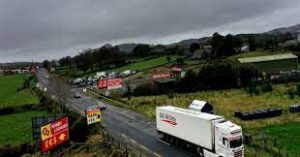
A Brexit treaty on Northern Ireland, negotiated by Prime Minister of UK Boris Johnson and called the Northern Ireland Protocol, could create so many problems that it might have to be abandoned if it cannot be rewritten.
The protocol aims to resolve one of the thorniest issues created by Brexit: what to do about the border between Northern Ireland, which is part of the United Kingdom, and the Republic of Ireland, which remains part of the EU.
The protocol sets out a plan to deal with this unique situation. It does so by effectively leaving Northern Ireland half inside the European system, and half inside the British one.
The plan means more checks on goods entering Northern Ireland from mainland Britain, effectively creating a border down the Irish Sea and dividing the UK.
The Gaon Bura of Assam’s history
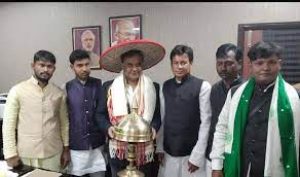
The Assam government recently announced that Gaon Buras (village headman), village-level functionaries of the district administration, will henceforth be called ‘Gaon Pradhans’.
The institution of Gaon Bura in Assam dates back to the colonial era, when the British appointed the oldest person in the village as the head, who would oversee matters relating to land and revenue in a particular area.
The position would usually go to the oldest, most knowledgeable man who had good personal ties with everyone in a village, or a cluster of small villages.
In Arunachal Pradesh, too, the Gaon Buras (and Buris) are the most important village-level functionaries.
Post-independence, the government continued with the institution and made the Gaon Bura a formal part of the Assam Revenue and Disaster Management department, increasing his responsibilities, and eventually introducing a small honorarium for the role.
Two policemen sentenced to life imprisonment for Karnal custodial death
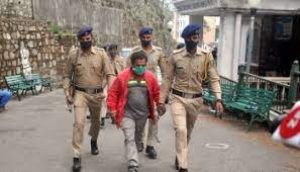
A special CBI court recently convicted two policemen for the custodial death of a murder accused, who had been burnt alive inside the police station.
The judgment relied heavily on the ‘dying declaration’ made by the victim prior to his death.
The law presumes that no person will meet their maker with a lie in their mouth. So Section 32 of the Indian Evidence Act, 1872 deals with cases in which statement of relevant fact is made by a person who is dead or cannot be found.
The general rule under Section 60 of the Act is that all oral evidence must be direct — he heard it, saw it or perceived it.
The grounds of admission under a dying declaration have been based on two broad rules —
- one, the victim being generally the only principal eye-witness to the crime; and
- two, the sense of impending death, which creates a sanction equal to the obligation of an oath.
Benefits to Farmers under Pradhan Mantri Fasal Bima Yojana (PMFBY)
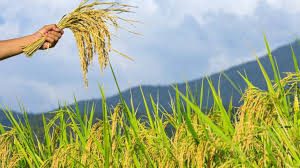
Pradhan Mantri Fasal Bima Yojana (PMFBY) is being implemented on actuarial/bidded premium rates however, farmers including small farmers have to pay maximum 2% for Kharif, 1.5% for Rabi food and oilseed crops and 5% for commercial/horticultural crops.
The Pradhan Mantri Fasal Bima Yojana (PMFBY) launched on 18 February 2016 by Prime Minister Narendra Modi is an insurance service for farmers for their yields.
It was formulated in line with One Nation–One Scheme theme by replacing earlier two schemes National Agricultural Insurance Scheme (NAIS) and Modified National Agricultural Insurance Scheme (MNAIS) by incorporating their best features and removing their inherent drawbacks (shortcomings).
It aims to reduce the premium burden on farmers and ensure early settlement of crop assurance claim for the full insured sum.
PMFBY aims to provide a comprehensive insurance cover against failure of the crop thus helping in stabilising the income of the farmers.
US changed its mind on Nord Stream 2 pipeline
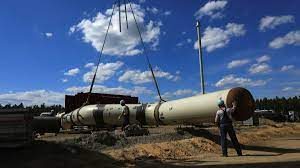
The United States of America had previously imposed sanctions to prevent the completion of a major new gas pipeline between Russia and Germany. Now it has now signalled its approval for the project.
The US and Germany reached a deal on the Nord Stream 2 pipeline – which significantly increases Europe’s energy dependence on Russia– under which Berlin will respond to stop Moscow should the latter use the strategically critical gas system as political leverage.
In 2015, the Russian energy major Gazprom and five other European firms decided to build Nord Stream 2, valued at around $11 billion.
The 1,200-km pipeline will run from Ust-Luga in Russia to Greifswald in Germany through the Baltic Sea, and will carry 55 billion cubic metres of gas per year.
The under-construction pipeline will run along with the already completed Nord Stream 1 system, and the two together will supply an aggregate of 110 billion cubic metres of gas to Germany per year.
The pipeline falls in the territory of EU members Germany and Denmark, and is about 98% complete.
The Great Indian Bustards of Kutch
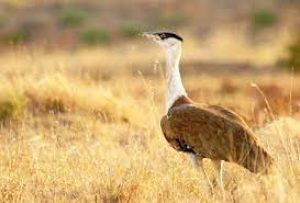
The Central government of India has informed the Rajya Sabha that there were no Great Indian Bustards (GIB) in Kutch Bustard Sanctuary (KBS) in Gujarat’s Kutch district as on January 1 this year.
GIBs are the largest among the four bustard species found in India, the other three being MacQueen’s bustard, lesser florican and the Bengal florican.
GIBs’ historic range included much of the Indian sub-continent but it has now shrunken to just 10 per cent of it.
Among the heaviest birds with flight, GIBs prefer grasslands as their habitats.
Being terrestrial birds, they spend most of their time on the ground with occasional flights to go from one part of their habitat to the other. They feed on insects, lizards, grass seeds etc.
In February 2020, the Central government had told the 13th Conference of Parties to the United Nations Convention on Migratory Species of Wild Animals (CMS) held in Gandhinagar, that the GIB population in India had fallen to just 150.
Integrated Multi-purpose Corporation for the Union Territory of Ladakh

The Union Cabinet has approved the establishment of an Integrated Multi-purpose infrastructure Development Corporation for the Union Territory of Ladakh
The Cabinet also approved the creation of one post of Managing Director, for the corporation in the pay scale of Rs.1,44,200- Rs.2,18,200 level.
The authorized share capital of the Corporation will be Rs.25 crore and recurring expenditure will be around Rs. 2.42 crore per year.
It is a new establishment. Presently, there is no such similar organization within the newly formed UT of Ladakh.
It is being developed on the lines of the Andaman & Nicobar Islands Integrated Development Corporation Limited (ANIIDCO), with an appropriate mandate to take up various developmental activities as per the specific needs of Ladakh.
Laws for surveillance in India and the concerns over privacy

The government of India has claimed that all interception in India takes place lawfully in response to the finding by a global collaborative investigative project that Israeli spyware Pegasus was used to target at least 300 individuals in India.
Communication surveillance in India takes place primarily under two laws — the Telegraph Act, 1885 and the Information Technology Act, 2000.
While the Telegraph Act deals with interception of calls, the IT Act was enacted to deal with surveillance of all electronic communication, following the Supreme Court’s intervention in 1996.
In Public Union for Civil Liberties v Union of India (1996), the Supreme Court pointed out lack of procedural safeguards in the provisions of the Telegraph Act and laid down certain guidelines for interceptions.
National Thermal Engineer Day 2021

National Thermal Engineer Day is observed on 24 July each year to mark and appreciate all thermal engineers in the country.
The day honours the significance of thermal management in the electronics sector, as well as the engineers and businesses who make it possible.
Regardless of the market sector, without the efforts of thermal engineers, the electronics that are an important part of modern life and the foundation of our country’s technical progress would not be feasible.
Advanced Thermal Solutions Inc (ATS) established the day in 2014. ATS focuses on offering efficient and cost-effective thermal energy regulation and electronic packaging solutions. It also attempts to emphasise the significance of the thermal energy industry.
Festival of Goddess Jwala ji celebrated in Pulwama

Annual festival of Goddess Jwala ji in south Kashmir’s Pulwama district was celebrated in the Union Territory of Jammu and Kashmir.
Jwala Ji is a Hindu Goddess. Alternative spelling and names for Jwala Ji include Jawala Ji, Jwala Devi and Jwalamukhi Ji.
The physical manifestation of Jwala Ji is always a set of eternal flames, and the term Jwala means flame in Sanskrit and Ji is an honorific used in the Indian subcontinent.
Ancient legends speak of a time when demons lorded over the Himalaya mountains and harassed the gods.
Led by Lord Vishnu, the gods decided to destroy them. They focused their strengths and huge flames rose from the ground. From that fire, a young girl took birth. She is regarded as Adishakti-the first ‘shakti’.
Indian Naval Ship Tabar arrives at St Petersburg, Russia

Indian Naval Ship Tabar arrived at St Petersburg as part of a five-day goodwill visit to Russia and to participate in the 325th Navy Day celebrations of the Russian Navy.
India and Russia share special bilateral relations that span several decades. These include close military ties and strong cooperation between the two navies.
INS Tabar is a Talwar-class stealth frigate and forms part of the Indian Navy’s Western Fleet which is based at Mumbai under the Western Naval Command.
Incidentally, the ship was built for the Indian Navy in Russia and was commissioned at St Petersburg in April 2004.
The ship is presently commanded by Capt Mahesh Mangipudi and has a complement of over 300 personnel.
The ship is equipped with a versatile range of weapons and sensors and is among the earliest stealth frigates of the Indian Navy.





